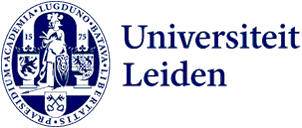
Marja Spierenburg about the importance of the EuroScience Open Forum
From Wednesday 13 July 2022, for four days, Leiden is at the epicentre of European science, as it hosts Europe's largest interdisciplinary conference, the EuroScience Open Forum (ESOF). We interviewed Marja Spierenburg, Professor in the Anthropology of Sustainability and Livelihood. In addition to being the keynote speaker on Friday 15 July 2022, Marja is also a panellist at the conference’s opening ceremony. We asked her what she hopes to contribute to ESOF, what she hopes to get out of it, and why she thinks this conference is valuable for others as well.
What do you hope to contribute to the conference?
At ESOF, Marja Spierenburg wants to draw attention to the difficult task of creating widespread support for initiatives at the supranational level and of ensuring that the costs, benefits, and risks of the necessary social transitions are fairly distributed across different population groups. People often first the exact scientists calculated what was needed, and then the social scientists had to figure out how to get people to do it. But that's not quite how it works. Even if models are incredibly complex, they are still simpler than the underlying reality. You can model something on a large scale, but it may turn out very differently at the local level. So in the interdisciplinary programme "Liveable Planet", for instance, we're very conscious of the fact that you have to keep constantly shifting back and forth between global models and local models and situations. Switching perspective ensures you get the balance right and ensure that the distribution of costs, benefits, and risks remains fair.
'..it is important to take a much more interdisciplinary and transdisciplinary approach.’
In addition to the importance of maintaining fundamental research within each specific discipline, there are increasing calls for cooperation between scientists and societal partners. And in relationships with societal partners, it is important to take a much more interdisciplinary and transdisciplinary approach. This is increasingly a prerequisite for research funding. In fact, there is a real need for research into how to best to structure such trans- or interdisciplinary collaboration, because it is not as simple as we often think. In view of the inequality between different groups we collaborate with, it is important that the collaboration processes themselves do not lead to further exclusion.
Finally, Marja also hopes to point out that we do not live in (national) isolation. We live in a global economy. So Dutch plans to reduce emissions, for instance, have implications for other countries. Increased demand for electric vehicles in the Netherlands leads to intensified mining in the Congo, so there may be all kinds of consequences in the way of conflicts and human rights violations.
What are you hoping to get out of the conference?
Many different countries have amassed a great deal of experience on how to conduct research on interconnected social issues such as inequality, diversity, and sustainability. At ESOF, we can all learn from each other's experiences. How do you conduct research into social transitions of this kind? How can you work together in interdisciplinary or transdisciplinary teams? But also, how can we distribute the costs among the different countries involved? The Covid-19 crisis demonstrated, for instance, that it was easier for northern European countries to borrow than for southern European countries. And this in turn affected attitudes to Covid-19 measures in the various countries. Marja is also looking forward to hearing more about the ways in which citizens in other countries are involved in co-determining decision-making on scientific agendas.
'At ESOF, we can all learn from each other's experiences.’
The erosion of trust in science is also an important issue that Marja believes needs to be addressed by both scientists and politicians. How can we ensure that citizens have realistic expectations about science? How do we communicate the certainties, and perhaps more importantly, the uncertainties of science? In the panel discussion, she wants to remind policymakers and politicians of their responsibility to provide clear insight into their
own decision-making processes, rather than passing the buck to the scientists. In many cases, scientists can point out and calculate the expected effects of a decision extremely precisely. However, it must be made clear that the decisions that are ultimately made on the basis of the scientists’ advice are political decisions.
Who is this symposium of interest to?
Major social transitions are clearly on the agenda. It is important for scientists, but also for policymakers, to discuss such issues. What role can science play in these social transitions? What should be the role of societal partners? How can we get both parties to the table, taking into account the various supranational effects and influences?
For students too there is plenty of interest at ESOF. Multiple surveys have shown that the topics that will be covered – like sustainability, inequality, and the decolonisation of science – are very important for students and PhD students. ESOF is the place for students to find out about how scientists deal with this, and to connect with other disciplines. For the newer generations this is a clear opportunity to make their societal voice heard on these issues and to push the older generations to look beyond the boundaries of their own disciplines.
From 13-16 July 2022, Leiden plays host to ESOF2022, the largest multidisciplinary scientific conference in Europe. The 10th edition of ESOF will take place in Leiden, in close cooperation with EuroScience of Strasbourt. ESOF2022 focuses on seven themes: Sustainable environment, Cultural Identities and Societal Transformation, Space for Science, Healthy Societies, Freedom and Responsibility of Science, Science and Business, and Sustainable Academic Careers.
Text: Rick Henneveld
